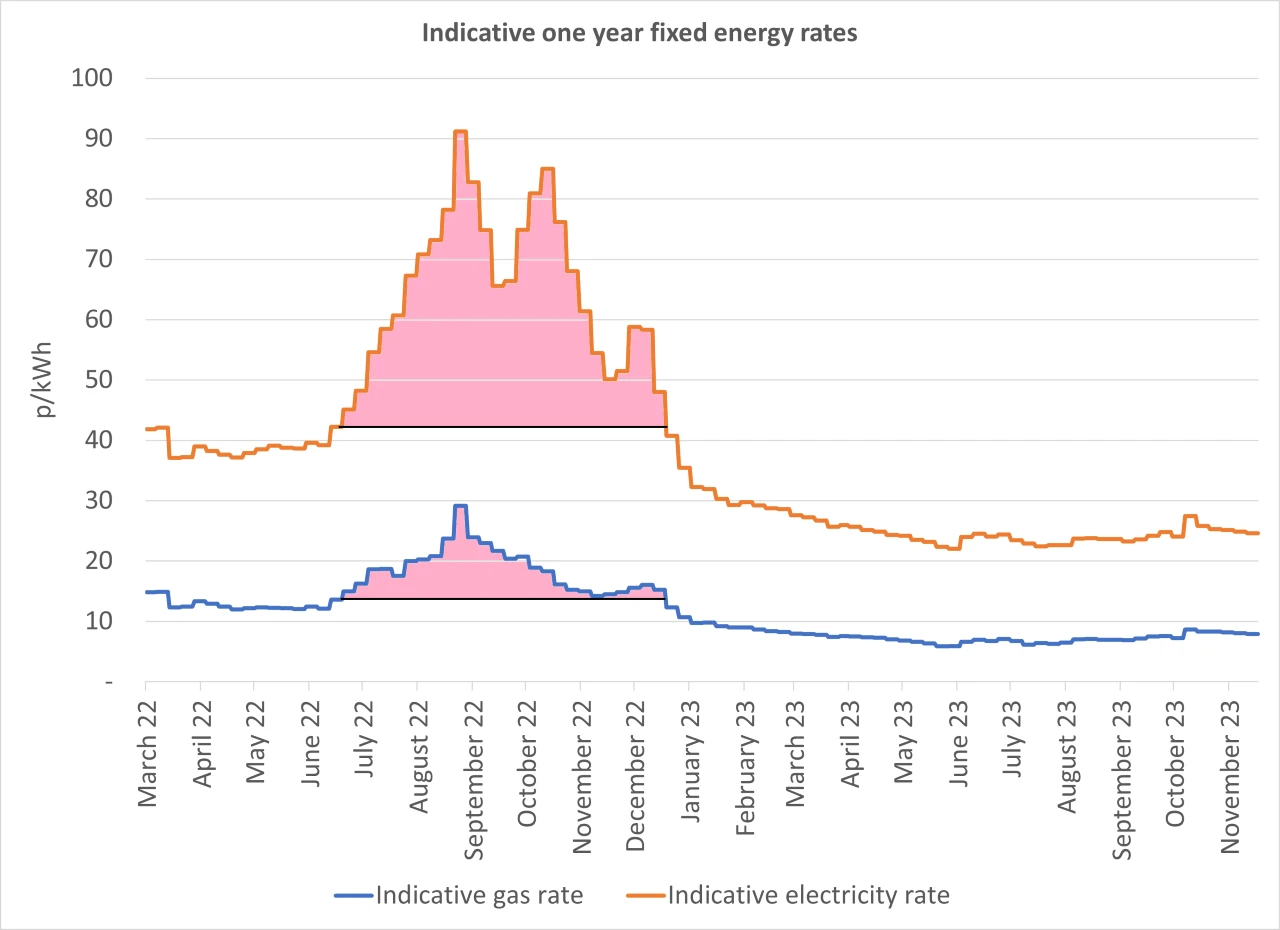Business energy price cap
There is no price cap on business energy. Get quotes to save today.
Just enter your business postcode…
There is no price cap on business energy. Get quotes to save today.
Just enter your business postcode…
Start saving now
No. Unlike domestic energy, there is no price cap that directly limits business electricity and gas bills.
The only direct support for business energy bills (the Energy Bill Discount Scheme) ended on 31 March 2024 and has not been replaced.
💡There are currently no government plans to offer any cap on business energy rates.
This article explores everything you need to know about how British business energy prices are regulated.
Contents
The energy price cap is a relatively new innovation in the energy market. Theresa May’s Conservative government imposed the cap in 2018 to prevent energy suppliers from overcharging domestic customers on their uncompetitive standard variable energy tariffs.
When the price cap was introduced, there was recognition that the cap might reduce engagement and dampen competition and innovation in the energy sector. Consequently, the price cap was only applied to electricity and gas supplied to homes.
The decision not to intervene in the commercial energy sector relied on the free market principle that business owners and operators have the freedom to choose the best business energy suppliers and tariffs for themselves and do not need protection from expensive prices.
Another key factor is that the business energy market is vastly more complex than the home energy market. Business electricity includes complexities like maximum demand charges and half-hourly meters. Additionally, the business energy consumption of a hairdresser versus an aluminium smelter, are so vastly different that it is difficult to apply a simple energy price cap.
Despite this Ofgem, the regulator specifically applies some market protection for the smallest companies.
Ofgem doesn’t extend price cap protection to small business energy customers. However, they impose specific rules that suppliers must follow when providing electricity or gas to micro businesses. Here’s a summary of the regulatory support for small businesses:
Source: Ofgem microbusiness guidance
During the energy crisis of 2022, a supply-side shock caused wholesale energy prices to spike to almost 10 times their normal rate.
The unprecedented increase in energy costs compelled the UK government to implement emergency measures to support businesses, introducing a time-limited business energy price cap known as the Energy Bill Relief Scheme.
Later, this scheme was watered down to provide an automatic discount on the most expensive business energy tariffs, known as the Energy Bill Discount Scheme, which ended on 31 March 2024.
Here, we’ll delve into the specifics of these two schemes.
💡The business energy price caps were applied to unit rates only. There was no discount on business energy standing charges or the climate change levy.
The Energy Bill Relief Scheme was the initial business energy price cap introduced during the peak of the energy crisis to support British companies, charities, and public sector organisations.
Applicable dates: 1 October 2022 to 31 March 2023
The Energy Bill Relief Scheme provided an automatic discount to non-domestic energy bills, capping the wholesale component of bills at:
Source: Gov.uk – Energy Bill Relief Scheme
For a comprehensive guide with more information, refer to: Energy Bill Relief Scheme
The Energy Bill Discount Scheme was introduced as a successor scheme once the energy crisis had eased at the start of 2023.
The scheme aimed to provide an automatic discount to businesses that chose to fix energy prices during the peak of the energy crisis and, therefore, got locked into costly long-term energy contracts.
Applicable dates: 1 April 2023 to 31 March 2024.
The discount only applied if wholesale energy prices exceeded the following thresholds:
The discount was applicable when costs surpassed the thresholds, up to a maximum of:
Source: UK Gov Guidance
For a detailed guide with more information, refer to: Energy Bill Discount Scheme
The graph below illustrates the fluctuations in fixed business energy prices and business gas prices during the energy crisis. The highlighted red prices indicate the periods when fixed tariffs in the market reached their peak.
During this period, businesses that entered into fixed tariffs received an automatic discount under the Energy Bill Discount Scheme.
